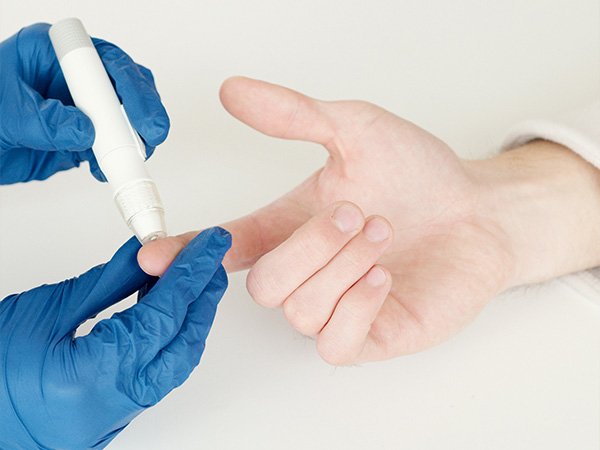Diabetes and Heart Attack: The Link You Need to Know

Prediabetes is a condition where your blood sugar levels are higher than normal but not high enough to be diagnosed as diabetes. Prediabetes can lead to type 2 diabetes if left untreated. If you have been told that you have prediabetes, it’s time to take action!
If you have diabetes, it means you have a higher chance of developing heart disease. People with diabetes often have other risk factors for heart disease, such as high blood pressure or high cholesterol. This means they have a higher chance of having a heart attack or a stroke. You can protect your heart and health by managing your blood glucose (blood sugar) levels. You can also protect yourself by controlling your high blood pressure and high cholesterol. If you smoke, it’s important to stop.
Strokes, heart disease, and diabetes: What is the connection?
People with diabetes have a higher risk of developing heart disease or stroke. This is because high blood glucose from diabetes can damage blood vessels and nerves. However, people with diabetes can lower their chances of developing heart disease or stroke by managing their diabetes.
Prediabetes increases the risk of heart attacks, according to a new study

- There has been a link between diabetes and heart diseases. In fact, the first recorded case was documented in 1546 BC. This relationship has been established through several studies that have shown how people who suffer from diabetes are at risk for developing cardiovascular diseases like coronary artery disease (CAD).
- Diabetes can cause CAD due to three major reasons. First, high blood sugar levels can lead to plaque buildup in the arteries. Second, high blood pressure can occur if the body does not produce enough insulin. Third, high cholesterol levels can result from poor diet and lack of exercise.
- A study published in Diabetes Care in 2010 showed that patients who had type 2 diabetes were twice as likely to develop CAD compared to those without diabetes. Another study published in Circulation Research in 2011 demonstrated that diabetic patients who did not control their blood glucose levels were at higher risk of having a heart attack than non-diabetics.
- As reported by one study presented at ENDO 2022, an annual Endocrine Society meeting, prediabetes also increases the risk of heart attacks by 25% when compared with patients who do not have prediabetes. After adjustment for heart risk factors including age, gender, race, family history of heart attack, hypertension, high cholesterol, diabetes, smoking, and obesity, Prediabetes was associated with 25 percent increased odds of a heart attack as compared with patients without Prediabetes.
- The association between prediabetes and events was strongest for men, Blacks, and those with family histories of cardiovascular disease or individual risk factors for heart disease. In patients with a history of heart disease, prediabetes was associated with a 36 percent increased risk of all-cause mortality and a 37 percent increased risk of cardiovascular events, at the median follow-up of about 3 years, but there was no difference in risk of stroke.
- People with prediabetes are substantially more likely to suffer from heart attacks, strokes, or other major cardiovascular events, when compared to those who had normal blood sugar levels, according to research at the 70th annual scientific meeting of the American College of Cardiology. Among younger adults who were hospitalized with a heart attack, prediabetes did not seem to affect their risk for other major cardiovascular events, like heart failure or stroke. According to an AHA study, young adults with prediabetes, defined as having blood sugar levels that are higher than normal, but not high enough for a type 2 diabetes diagnosis, were 1.7 times more likely to be hospitalized for a heart attack compared with young adults without prediabetes.
Are You at Risk of a Heart Attack? Check If You Have Prediabetes – Symptoms & Diagnosis

- Symptoms include frequent urination, increased thirst, fatigue, weight gain, blurred vision, dry skin, slow healing of cuts/wounds, depression, irritability, and poor concentration.
- To diagnose prediabetes, you may have to do several tests. Your doctor will check your fasting plasma glucose level. A fasting plasma glucose test measures the amount of glucose in your blood after eating nothing for 8 hours. Your blood glucose levels should be between 100 mg/dL and 125 mg/dL. You can consider these levels normal. Your doctor may also perform a 75-g oral glucose tolerance test to measure your blood glucose levels after drinking a sugary drink. You should have a fasting blood glucose level of less than 110 mg/dL and a 120-minute postprandial blood glucose level of 140 mg/dL or lower.
- Treatment of prediabetes includes lifestyle changes, including diet modification and regular physical activity. Lifestyle modifications can help prevent the progression of prediabetes to full-blown diabetes.
Read More: Symptoms of Diabetes
Do I have other risk factors for heart disease or stroke if I have diabetes?
Yes, there are other factors that can increase the risk of heart diseases and strokes if you have diabetes. Below we have mentioned the other factors that can cause a risk of heart attack and stroke:
- High blood sugar levels
- High cholesterol levels
- Obesity
- Smoking
- Alcohol
- Salt
How can I lower my chances of a heart attack or stroke if I have diabetes?

If you are diabetic, then you should know that your risk of having a heart attack or stroke increases significantly. Your risk of suffering from these diseases could increase even further if you do not take care of yourself. You need to manage your blood sugar levels, cholesterol, blood pressure, weight, and other health conditions if you want to reduce your chances of having a heart attack.
The first thing that you need to do if you have diabetes is to control your blood glucose levels. If you have high blood sugar, then it is likely that your body will produce too much insulin. Insulin helps cells absorb glucose (sugar) into your bloodstream. When this happens, your pancreas produces extra insulin to try and keep your blood glucose level normal. This is why people who suffer from type 1 diabetes always have to monitor their blood glucose levels.
Another way to help lower your chances of having a stroke or heart attack is to make sure that you do not smoke cigarettes. Smoking is known to cause many problems including cancer, cardiovascular disease, and other serious illnesses. People who smoke are at increased risk of developing a stroke or heart attack. In fact, smoking causes about 40% of strokes and 25% of heart attacks.
You should also eat a balanced diet. A healthy diet consists of foods that provide carbohydrates, protein, fat, vitamins, minerals, fiber, and water. Eating a balanced diet will help you achieve optimal health. Foods like nuts, whole grains, fruits, vegetables, beans, and lean meat are examples of good food choices. On the other hand, foods like processed meats, red meat, fried foods, fatty foods, sweets, and sugary drinks are examples of unhealthy food choices.
Diabetics use certain drugs to treat their condition. These include metformin, sulfonylurea, a thiazolidinedione, alpha-glucosidase inhibitors, incretins, dipeptidyl peptidase-4 (DPP-4) inhibitors, meglitinides, and sodium-glucose cotransporter 2 (SGLT2) inhibitors.
How do doctors diagnose heart disease in people with diabetes?

Doctors check for heart disease in people with diabetes by looking at their symptoms, medical history, and family history. They also do a physical exam and some tests. The results of these tests help the doctor decide if the person needs to see a specialist or have more tests.
Strokes and heart attacks have warning signs. What are they? Warning Signs Of Heart Attack And Stroke:
Chest pain that radiates into your jaw, neck, arms, back, or stomach, Shortness of breath, nausea or vomiting, Sweating, Lightheadedness or dizziness, Pain or pressure in your arm or shoulder, Weakness or numbness of your face, lips, tongue, or jaw, Cold sweating, Confusion and Loss of consciousness.
Here’s the good news – it’s manageable!
If we talk about India, around 14% of people are at risk of developing prediabetes. If people with prediabetes don’t take action to improve their blood sugar levels, they may develop type 2 diabetes. Type 2 diabetes can cause serious health problems, like heart disease, stroke, and nerve damage. But people with prediabetes can take steps to prevent type 2 diabetes by eating healthy and exercising. Your health is in your hands, so stop letting it get out of hand and take control. Stay Fit!